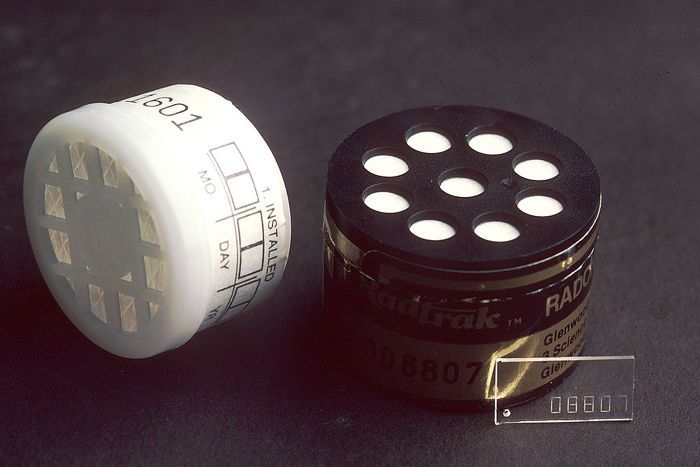
The Environmental Protection Agency is hoping more people will take steps to reduce their exposure to radon, a naturally occurring, odorless gas that kills more than 21,000 Americans every year.
January is “National Radon Action Month,” the EPA said as it posted a variety of links to health information on radon and how to lower risks from exposure. Radon is produced by the breakdown of radium and uranium in the soil and gets into houses through cracks in the foundation or via well water. Health officials estimate that one in 15 homes in the U.S. have elevated levels of radon in indoor air.
The only known health effect is lung cancer. Radon substantially increases the risk of lung cancer among smokers, and it kills nearly 3000 people a year who have never smoked.
The World Health Organization says radon is responsible for up to 15% of all lung-cancer cases worldwide.
“Action level” is not a safe level
Concentrations of radon can be tested with a simple kit (Home Depot sells kits for about $10, and they’re available from a number of online sources). The EPA recommends homeowners take steps to reduce radon levels when tests show concentrations of 4 picocuries per liter (pCi/L) in indoor air. But because there is no known “safe level” of exposure, the EPA also suggests homeowners consider remedial steps when radon levels are between 2 pCi/L and 4 pCi/L.
“Unfortunately, many Americans presume that because the action level is 4 pCi/L, a radon level of less than 4 pCi/L is ‘safe,'” the EPA says. “This perception is altogether too common in the residential real-estate market. In managing any risk, we should be concerned with the greatest risk. For most Americans, their greatest exposure to radon is in their homes; especially in rooms that are below grade (e.g., basements), rooms that are in contact with the ground and those rooms immediately above them.”
Radon test kits are available from a number of sources. Radon mitigation systems typically pull radon from inside the house and vent it above the roofline (the EPA has published a guide describing a number of mitigation techniques and also offers advice on choosing a contractor).
Fine Homebuilding Recommended Products
Fine Homebuilding receives a commission for items purchased through links on this site, including Amazon Associates and other affiliate advertising programs.

8067 All-Weather Flashing Tape

Reliable Crimp Connectors

Handy Heat Gun

Radon test kits are relatively inexpensive and widely available.























View Comments
Good Post
Good Post
Good Post
Good Post